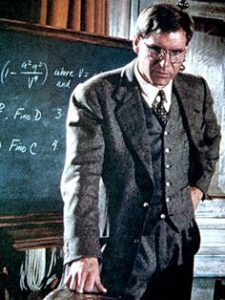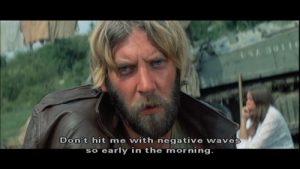
HIE 320: A Social and Cultural History of the Atomic Age
The technological possibility of eradicating life on earth was possibly the most dramatic development in human history. This lecture course will examine the scientific origins and the social and cultural effects of the introduction of nuclear energy and nuclear weapons onto the world stage from the 1930s through the 1960s.
HIE 346: The History of Canadian Armed Forces Operations.
The Canadian Forces as an institution has participated in the widest variety of military operations types and deployed in more geographically diverse areas than any of its predecessor organizations in Canadian history. This course will trace the origins of the Canadian Forces in the 1960s and will examine how the CF conducted overseas operations, including policies and strategies for waging the Cold War, UN peacekeeping and the era of intervention era in the early 1990s, and the current Al Qaeda War.
HIE 375: Limited War During the Cold War.
This course examines the plethora of smaller conflicts that occurred under the umbrella of the larger ideological and military competition between the West and the Soviet Union during the Cold War. These conflicts include French, British, and Portuguese wars of decolonization, the South African- Cuban confrontation in Angola, the Eritrean war, and proxy wars in Latin America. Special attention will also be paid to the Soviet Union’s war in Afghanistan and the lesser-known Indo-Pakistani wars. Students will develop an understanding of how the Cold War period involved multiple ‘hot’ wars and how and why these conflicts were fought.
HIE 377: The Cold War
The Cold War had both lasting military and social impact. The Cold War was the only sustained conflict in history that had the potential to end life on earth with mass nuclear weapons use. It was a conflict that had its own unique methods of fighting, from the intelligence war and covert action to space and even sporting events. This course will examine how the war was fought between the superpowers, and the dramatic influence it had on numerous regional conflicts from 1945 to 1990 as well as on Western society and culture.
HIE 470: Strategy and Strategists
A study of the most important interpreters of warfare from classical thinkers (Thucydides and Sun-Tzu) to the present. Also considered will be airpower and its proponents; geopolitical and maritime doctrines of war; the developments of military technology since 1945 and their impact on strategic thinking; the theories of deterrence, revolutionary and guerrilla war; disarmament and arms control and the international law of war.
